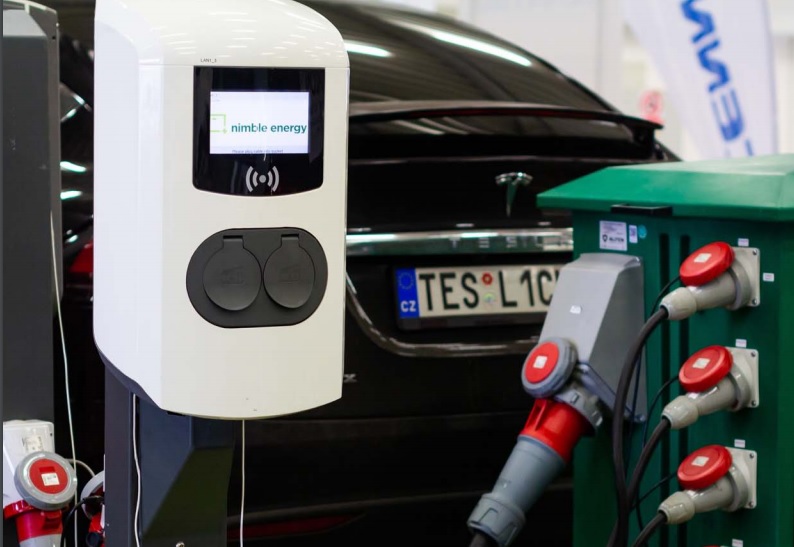Before reading this post, I recommend reading my article “The solution of advanced biofuels as opposed to the use of electric cars (part 1)”, text in which I highlight the importance of putting a magnifying glass on the adoption of electric cars as alternative to replace fossil diesel engines as a green and clean solution.
I found that this vision of opportunity and the future for the development of a clean energy matrix is similar to that recently expressed by Bill Gates in his article “How do we move in a zero-carbon world?” On the occasion, he reflected on the need to move without emitting greenhouse gases and, among several points presented, he discussed the role of advanced biofuels and the possibility of them being used in existing engines without the need for any modification.
“The problem is that the batteries are big and heavy. The more weight you are trying to move, the more batteries you need to power the vehicle. But the more batteries you use, the more weight you add – and the more energy you need. Even with great advances in battery technology, electric vehicles will probably never be a practical solution for things like 18-wheel vehicles, cargo ships and passenger jets. Electricity works when you need to cover short distances, but we need a different solution for long-haul vehicles”, says Gates.
In the essay “Electrifying the UK and the want of engineering” on The Global Warming Policy Foundation (check the archive of the publication), Michael Kelly, professor of technology at the University of Cambridge, indicates that if we replace all the UK vehicle fleet with electric vehicles we would need the following resources:
• 207,900 tonnes of cobalt – just under twice the annual global production;
• 264,600 tonnes of lithium carbonate – three quarters of the world’s production;
• at least 7,200 tonnes of neodymium and dysprosium – nearly the entire world production of neodymium;
• 2,362,500 tonnes of copper – more than half the world’s production in 2018.
And this is only for the UK. According to Kelly, “it is estimated that the capacity to manufacture batteries would have to increase more than 500 times, if we want the whole world to be transported by electric vehicles. The large increases in the supply of the materials described above would go beyond the known reserves ”.
Kelly points out that it is important to “consider the environmental impact of these materials”. Some of them are decidedly toxic when extracted, handled and processed. It is also worth considering what will happen to the batteries and the renewable energy systems that power them at the end of their useful lives.
According to the emeritus professor of Technology at the University of Cambridge, “we do not have the capacity to provide the necessary infrastructure to deliver electric cars and electric heating on a required scale by 2050”.
In the assessment, he indicates that the mining phase and the processing of raw materials necessary for the production of the battery represents about half of the lifetime emission of carbon dioxide from an electric car. The period of manufacture of a gasoline-powered car is responsible for 17% of carbon dioxide emissions in the car’s useful life. When a new electric vehicle is ready to be marketed, it has already emitted 13.6 tons of carbon dioxide. In the case of the conventional car, this emission is 6.3 tons.
When looking at this study, I wonder where are the inspection systems, controls and qualifications of the entire chain of production of batteries and electric cars that, in comparison to the process already adopted for the production of biofuels, could certify the entire chain and evidence the impacts environmental and social aspects of each resource.
Eco-friendly?
According to environmentalist Bjørn Lomborg, “electric cars are labeled as environmentally friendly, but generating the necessary electricity almost always involves burning fossil fuels. In addition, the production of energy-intensive batteries for these cars invariably generates significant CO2 emissions ”.
According to the International Energy Agency (IEA), an electric car, with a range of 400 kilometers, has a huge carbon deficit when it arrives on the road and will only start saving emissions after traveling 60,000 kilometers.
Lomborg points out that what would make a difference would be to demand a huge increase in spending on research and development of green energy, so that these energy sources end up becoming cheap enough to overcome fossil fuels. This is the real way to help combat climate change.
Advanced biofuels are the real solution
During my participation in the VI Symposium on Energy Efficiency, Emissions and Biofuels, promoted by the Brazilian Association of Automotive Engineering (AEA), as I highlighted in a previous article, I stressed that advanced biofuel is a renewable, biodegradable and sustainable source of energy.
It is advanced because it can be produced using clean methods (with less CO2 emissions) from animal fat residues, used cooking oils and vegetable oils. It is a true sustainability solution for a planet that must reduce its CO2 emissions in all forms of transport.
Since it is “immediate delivery”, which goes “straight to the tank”, it has a low transition cost. It does not require investments in the engine, in addition to using the available supply network.
Hybrid vehicles
I also support the hybrid vehicle solution (read Hybrid vehicles that use biofuels are the best solution for transporting passengers), which has electric traction and is powered by two energy sources – battery bank and diesel generator set or the biofuel – which can operate jointly or independently.
The production of biofuels needs to advance with industries with cutting edge technology, modern design, more sustainable, capable of producing cleaner and more advanced biofuels – important to take as an example of this strategy the Omega Green project (read more here), our investment in Paraguay that continues at an intense pace.
In Brazil, this path must pass through the definition of the regulatory framework for advanced biofuels. And it is essential to expand this debate in forums as qualified as this recent one promoted by the Brazilian Association of Automotive Engineering.


1 comment
Estoy totalmente de acuerdo con lo expuesto. En mi opinión, con la tecnología actual, plantear flotas de vehiculos eléctricos para minimizar las emisiones de CO2 sería como tapar el sol con el dedo. Para que el uso de un vehiculo eléctrico realmente contribuya con la disminución de la emisión de CO2, toda la cadena productiva, logísitca y energética debe estar alineada y comprometida con la emisión 0 de CO2, algo muy dificil de alcanzar.